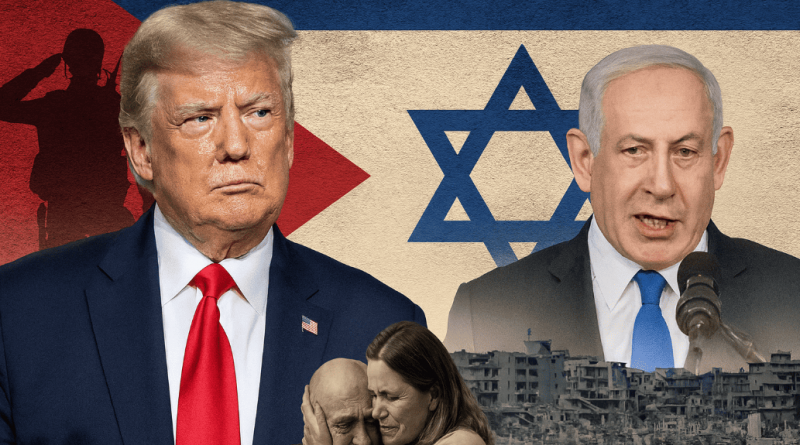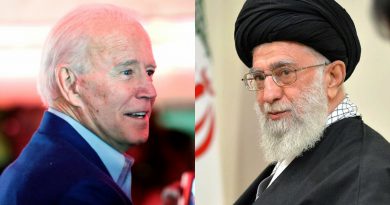Gaza ceasefire and hostage deal reached under US peace plan
The accord would mark a major foreign policy victory for Trump, who has pledged to bring resolution to protracted global conflicts including those in Gaza and Ukraine.
Israeli hostages held in Gaza may be released as early as Saturday under a U.S.-brokered plan aimed at ending the devastating war in the enclave, according to a source familiar with the agreement. The Israeli military is expected to complete the first stage of a partial withdrawal from Gaza within 24 hours of the deal being signed.
The formal signing of the ceasefire agreement, which constitutes the first phase of U.S. President Donald Trump’s peace initiative for Gaza, is scheduled for Thursday at noon Israel time (0900 GMT), the source said.
The deal comes amid cautious optimism and widespread relief across both Israel and the Palestinian territories after Trump announced late Wednesday that Israel and Hamas had reached consensus on a ceasefire and hostage release plan — a move that could mark the most significant diplomatic breakthrough since the war erupted two years ago.
A war that reshaped the Middle East
The conflict, which began following the October 7, 2023 Hamas attacks, has left more than 67,000 people dead in Gaza, according to local authorities, and has drawn in regional actors including Iran, Yemen, and Lebanon.
Israel’s assault flattened much of the coastal strip, while sparking growing global condemnation over what rights experts and a U.N. inquiry have described as possible genocide — an accusation Israel strongly denies, maintaining its operations constitute self-defense.
“Thank God for the ceasefire, the end of bloodshed and killing,” said Abdul Majeed Abd Rabbo, speaking from the southern Gaza city of Khan Younis. “All of Gaza is happy, all Arab people are happy, and the world is happy with the end of the bloodshed.”
Despite the jubilation, analysts warn that the agreement remains fragile, lacking clarity on several core issues including post-war governance of Gaza and the long-term fate of Hamas.
Trump announces breakthrough
“I am very proud to announce that Israel and Hamas have both signed off on the first phase of our Peace Plan,” Trump said on Truth Social. “This means that all of the hostages will be released very soon, and Israel will withdraw their troops to an agreed line as the first steps toward a strong, durable, and everlasting peace.”
If successfully implemented, the accord would mark a major foreign policy victory for Trump, who has pledged to bring resolution to protracted global conflicts including those in Gaza and Ukraine.
“This deal brings us closer than any previous effort to halting a war that has engulfed the region,” a senior Western diplomat involved in the talks told Al Arabiya English on condition of anonymity. “But much will depend on how both sides implement the next steps.”
Netanyahu hails ‘national victory’
Israeli Prime Minister Benjamin Netanyahu said his government would convene on Thursday to formally approve the plan.
“With the approval of the first phase of the plan, all our hostages will be brought home,” Netanyahu said in a statement. “This is a diplomatic success and a national and moral victory for the State of Israel.”
The conflict, which saw Israel assassinate top leaders of Hamas, Hezbollah, and several Iranian commanders, has redrawn the Middle East’s political landscape. Yet Israel has faced unprecedented global backlash over the scale of civilian casualties and destruction in Gaza.
Under the new accord, Israel is to withdraw troops from specific areas of Gaza while maintaining “security control” along agreed buffer zones. In exchange, Hamas is expected to release all surviving hostages, with their return to begin within 72 hours of the agreement’s ratification.
Hostage release expected within days
Families of hostages gathered in Hostages Square in Tel Aviv to welcome the announcement, many waving Israeli flags and holding photos of their loved ones.
“President Trump, thank you very much,” said Hatan Angrest, whose son Matan is among those still held. “Our children would not be coming home without your help.”
According to a Hamas source, living hostages will be handed over within 72 hours of the deal’s approval, while recovery of the bodies of deceased hostages — believed to number about 28 — “will take longer” due to the extensive destruction in Gaza.
Trump told Fox News’ “Hannity” program that hostages could be released by Monday, adding that coordination was underway with Qatari and Egyptian mediators to oversee the exchange.
Israeli officials say 1,200 people were killed and 251 taken hostage during the Hamas-led cross-border assault in 2023. Of the 48 hostages confirmed to remain in Gaza, around 20 are believed to still be alive.
Hamas confirms deal includes withdrawal, prisoner exchange
Hamas confirmed in a statement that it had agreed to the terms of the ceasefire, which include an Israeli military withdrawal from Gaza and a hostage-prisoner exchange.
“We affirm that the sacrifices of our people will not be in vain,” Hamas said. “We will remain true to our pledge — never abandoning our people’s national rights until freedom, independence, and self-determination are achieved.”
In the southern city of Khan Younis, Palestinian resident Khaled Shaat described the news as “historic.”
“These are long-awaited moments after two years of killing and genocide that were committed against the Palestinian people,” he said.
However, several key aspects of the deal remain unresolved — particularly who will govern Gaza once Israeli troops withdraw and whether Hamas will retain any administrative or security role.
Post-war governance unclear
The next phase of Trump’s 20-point framework envisions the creation of an international oversight body led by the U.S. and including former British Prime Minister Tony Blair to help manage Gaza’s post-war transition. The body would coordinate reconstruction, security, and humanitarian operations during a two-year interim period.
But Hamas has rejected any foreign administration, saying it would only accept a Palestinian technocratic government under the supervision of the Palestinian Authority and backed by Arab and Muslim countries.
“We will not accept foreign rule or trusteeship over Gaza,” a Hamas political official told Al Arabiya English. “Gaza’s future must be decided by Palestinians.”
Arab states insist on path to Palestinian statehood
Several Arab governments that have quietly backed the Trump plan said any long-term settlement must pave the way toward the establishment of an independent Palestinian state.
“Peace will not be sustainable without addressing the core issue — Palestinian sovereignty,” a senior Arab diplomat said. “Any arrangement that ignores this will eventually fail.”
Israeli officials, however, have reiterated that no Palestinian state will be established under Netanyahu’s government. The Israeli leader has repeatedly stated that his priority remains ensuring “complete demilitarization of Gaza” and preventing Hamas or any other armed group from re-emerging.
Economic and regional impact
News of the potential ceasefire triggered a sharp fall in global oil prices, as investors welcomed reduced risk to supply chains amid fears of a wider Middle East escalation. Analysts noted that a sustained truce could ease regional tensions and reopen diplomatic channels between Israel and Arab states that had been strained since the war began.
“This is a significant de-escalation signal,” said an energy strategist in Dubai. “Markets are responding to the likelihood that the most immediate source of instability — the Gaza war — may finally be nearing its end.”
Skepticism remains
Despite the optimism, observers cautioned that previous ceasefire efforts have repeatedly collapsed, often within days of being declared.
“The fact that this deal has been brokered directly through Washington gives it weight,” said a former Israeli intelligence official. “But without guarantees from Egypt and Qatar — and without addressing Hamas’s long-term status — it could unravel quickly.”
Trump and Netanyahu spoke by phone late Wednesday, congratulating each other on what both described as a “historic achievement.” Netanyahu’s office said the Israeli leader had invited Trump to address the Knesset following the official signing ceremony.
For war-weary civilians on both sides, the agreement offers a rare glimmer of hope — though uncertainty lingers over what will follow.
“People in Gaza have lost everything,” said a humanitarian worker in Rafah. “If this ceasefire holds, it will be the first real chance in years for families to rebuild their lives — but peace will need more than a pause in fighting.”



